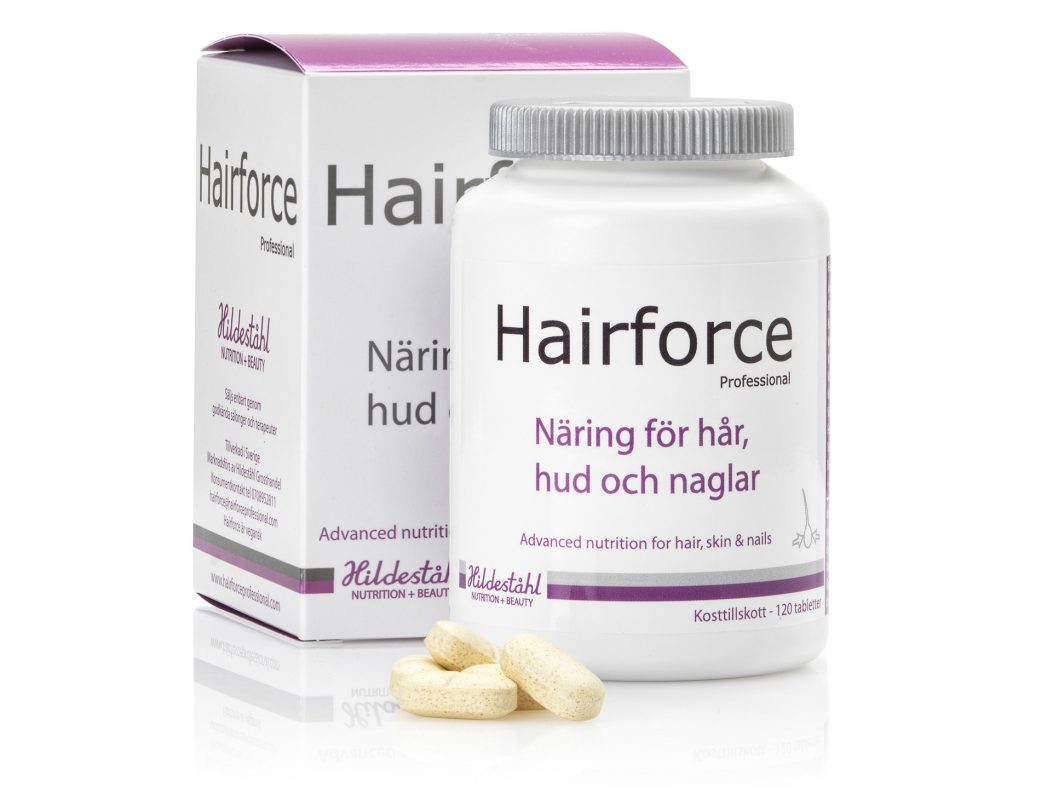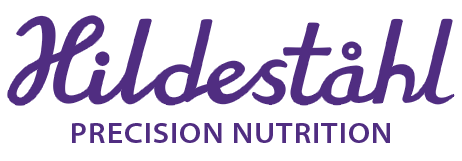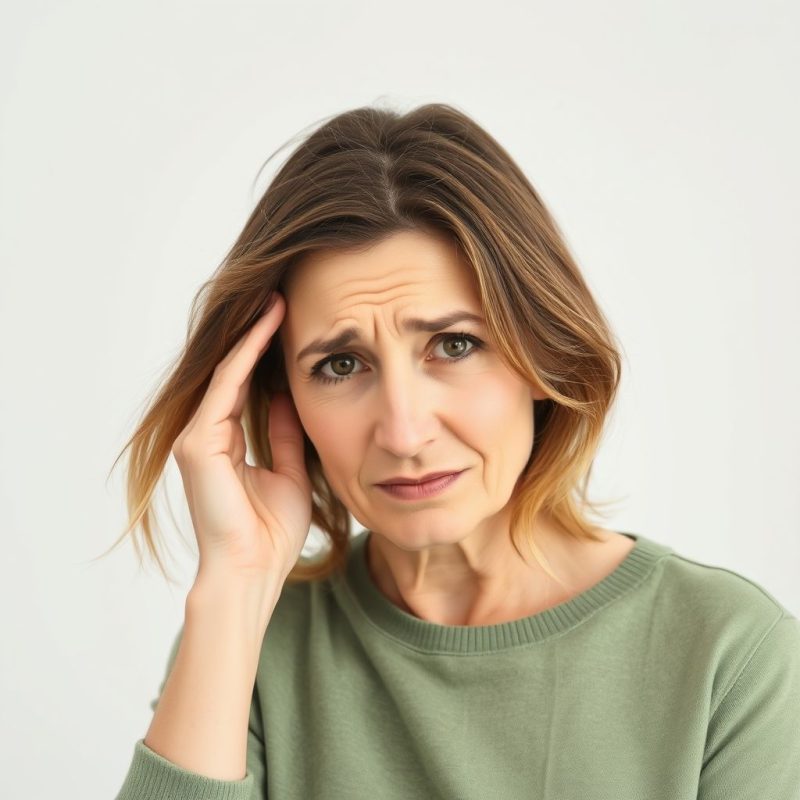No products in the cart.
Losing your hair from stress – why does it happen?
When you lose your hair from stress
The relationship between stress and hair loss
Today, stress is inevitable. We are surrounded by different stressors – work, relationships and worries about the future. Stress affects our body and mind in many ways, but did you know that it actually has a big impact on your hair? Stress can cause hair loss, thinning hair, gray hair and other problems such as scalp problems.
By understanding the relationship between stress and hair, you can hopefully do something about it.
We are experts in nutrition – what does it have to do with stress?
We usually say that during a period of stress, the body prioritizes short-term survival, our body doesn’t think hair is necessary for short-term survival, so it is deprioritized.
But actually, the effects of stress on our body are complicated.
It is the lifestyle and how we live that is key. But it is also important to support the body during intense periods in life with good food and nutrition. We know, for example, that when you run at high speed for a long time, your body needs extra electrolytes (minerals). The B vitamins are known as the “stress vitamins”, they are needed more when you are under pressure. The same goes for magnesium and other nutrients. When you go full throttle, you need to supply your body with high-octane fuel. That’s where Hairforce comes in, it gives the body supplements of the substances that are consumed to a greater extent when you live intensely and stress, so that the body does not need to urgently take off the nutrients that normally go to maintain hair, skin and nails to other things, because there was a shortage of them.
We all go through periods of stress from time to time, it seems inevitable in today’s society. Doing it for a short period of time, a couple of days, a week, usually doesn’t have a serious effect on hair and skin. The problem is when you live like that for a longer period of time, then it will show on your hair. Increased hair loss, thinner hair, poorer quality hair. It also affects the skin, making it dull and less supple.
Different types of effects of stress on your hair
The effects of stress on your hair are multiple – hair loss and thinning, gray hair and scalp problems. Let’s take a closer look at each of them.
Hair loss
The most common problem associated with stress is hair loss. Sudden acute stress can trigger alopecia and severe hair loss, but I think most of the people reading this article have noticed a longer-term deterioration in the quality of their hair, that it has become a little thinner and more frizzy. At the same time, if this applies to you, you are probably aware that you have been living a little too intensively lately?
Long-term stress tends to cause hair loss and a decrease in overall hair density. This is partly a result of hair follicles becoming ‘stuck’ in their resting phase, i.e. the resting phase of the hair growth cycle becomes longer and hair loss increases.
Thinning hair
If the stress continues, the quality of the hair will deteriorate. Each strand will become thinner, more fragile and more easily split.
Stress also affects male pattern hair loss. Stress exacerbates the male hormonal imbalance, leading to poorer microcirculation in the scalp and poorer nutritional supply. The result is weakened, miniaturized hair follicles and inflammation of the scalp.
Grey hair
Studies have shown that stress can accelerate the graying of hair. This is because stress affects the function of melanocytes (cells that determine hair color), whose ability to produce pigment is reduced.
Recently, it has been found that melanocytes are damaged by oxidative stress and this may be the main cause of graying hair. The body’s own oxidative stress protection system around the hair follicles deteriorates when we live stressful lives and do not recover sufficiently. For example, higher levels of hydrogen peroxide have been found around hair follicles that produce gray hair and signs of oxidative damage. The body normally has its own system to deal with this, but under stress it works less well.
Scalp problems
Under stress, the barrier function of the whole skin can be impaired. The balance of sebum and moisture on the scalp is disturbed and problems such as dryness, excessive sebum secretion, dandruff and itching can increase.
If the scalp becomes inflamed, it will also have a very negative impact on the hair follicle and it will be one of the causes of increased hair loss.
This doesn’t sound very uplifting, but don’t get stressed just reading this! It’s time to do something about it. Your body is signaling you to find new habits and change your lifestyle, at least a little at a time!
List of factors that impair hair health
Factors | It leads to | Results on hair |
|---|---|---|
Lack of blood flow | Reduced nutrition and oxygen supply | Less vital hair matrix cells, hair loss increases |
Excessive sebum secretion | Pores clogged, increased risk of inflammation | Deterioration of the scalp environment, inhibition of hair growth |
Mental tension | Hormonal imbalance | Hair cycle disorder, increased risk of hair loss |
Lack of sleep | Reduced growth hormone secretion | Reduced hair regeneration and repair capacity |
How stress affects your hair
By understanding how stress negatively affects your hair, you can hopefully do something about it.
Changes in hormonal balance and hair growth cycles
Stress causes an excessive secretion of a hormone called cortisol, also known as the ‘stress hormone’. It is known to have a negative impact on the hair growth cycle if its level is high for a long time. The normal hair growth cycle consists of the growth phase, the transition phase, the resting phase and finally the shedding phase. When the hormonal balance is disturbed, the consequence is hair loss and poorer growth as a result of the hair growth cycle not working.
Hormone imbalances affect the whole body and also hair in ways other than hair growth cycles. Problems with sex hormones are thought to be responsible for male pattern hair loss and probably also female pattern hair loss.
Stress and the nervous system
What is the difference between the sympathetic and parasympathetic nervous systems?
The sympathetic and parasympathetic nervous systems have opposite roles. While the sympathetic nervous system makes the body’s systems alert, the parasympathetic nervous system sends signals that make the systems relax.
The two systems work together to keep the body in balance. The sympathetic nervous system takes the lead for as long as it takes to get you through a dangerous situation, for example by increasing heart rate, blood pressure and down-regulating digestion. The parasympathetic nervous system then steps in and restores the condition to normal.
When you are stressed, the balance between them is upset and the sympathetic nervous system remains dominant. The consequences are many. For example, your blood vessels become more prone to constriction and blood circulation is impaired. As a result, nutrients don’t reach the hair roots properly, which inhibits hair growth.
Poorer circulation
As we’ve already mentioned, when you’re stressed, your autonomic nervous system is disrupted and circulation is impaired. We often harp on here about how important circulation is for hair! Because as a result of poor circulation, the hair roots don’t get enough nutrients. This can lead to premature hair loss. And of course, growth is impaired and the hair that does grow has less strength.
You can do scalp massages or moderate exercise to promote blood flow. More on what you can do below!
Lack of sleep and disruption of hormone secretion
It may sound obvious, but a good night’s sleep is an important part of hair health. Growth hormone is secreted during sleep to promote cell repair and regeneration, so chronic sleep deprivation reduces the resilience of hair follicles.
In addition, lack of sleep tends to lead to disturbances in the autonomic nervous system and can be a factor that further leads to hair loss due to stress.
Lack of nutrition
When you’re stressed, your appetite tends to decrease and you often eat one-sidedly. In fact, you need to be even more mindful of what you eat during intense periods, but this is easier said than done.
In particular, nutrients such as protein, vitamins and minerals are important for hair growth. Deficiency makes your hair thinner or more prone to falling out.
Stress also interferes with digestion and the absorption of nutrients. It affects our bacterial flora in the gut, the good bacteria don’t like it at all when you stress, worry and are careless with your food. This often results in stomach problems and poorer nutrient absorption.
In this article, we don’t talk much about nutrition. If you want to read more about it, we recommend two other articles with us. This one is about nutrition for hair: Tablets for thicker hair. Another article goes in-depth, if you want to read more about the link between nutrition and your appearance: Nutrition and beauty.
Scalp not feeling well
Stress can lead to excessive secretion of sebum and deteriorate the scalp environment. Excess sebum can clog pores, cause inflammation and inhibit hair growth. Under stress, pathogens can get the upper hand more easily and things like fungal infections are more common.
The main factors affecting blood circulation on the scalp
Factors | Effects on blood circulation | Example of improvement |
|---|---|---|
Too much stress | Sympathetic nervous system dominates and circulation is impaired | Relaxation and rest time |
Lack of exercise | Muscle pump function decreases and blood circulation throughout the body stagnates | Light exercise, yoga, walking and stretching |
Disrupted body temperature regulation | Blood vessels constrict and suppress blood flow to the scalp | Make sure you don’t get cold |
Irregular diet and nutritional deficiencies | Many different effects on the whole body! | Think about what you eat. Use a high-quality food supplement like Hairforce Professional. |

Hair loss and stress – how do we deal with it?
Managing stress in everyday life
1) Meditation and relaxation: Incorporating relaxation techniques such as meditation, deep breathing and yoga into your daily life can calm your mind and reduce stress levels. It reduces the negative effects of stress on hormonal systems and more, and therefore has a positive effect on hair and skin. This is classic stress management advice. It may not be easy to incorporate it into your daily routine when going full throttle, we know it’s tricky.
2) Find time to do something fun: Spending time on something you are interested in and hobbies is really valuable and a fun way to reduce stress. Maybe it’s hard to find time in a busy schedule. But it doesn’t have to be a long time, nor something advanced or pretentious. Read a book. Do something that is just fun, for the sake of it. Preferably something where you use your hands!
2) Moderate exercise: Moving exercise helps to balance the stress hormones. Find exercises that work for you, such as walking, jogging, swimming, or whatever you like. It doesn’t have to be advanced, it doesn’t have to be much. A walk in the woods does wonders for stress levels! And don’t take your cell phone with you!
3) Adequate sleep: Good sleep is so important for the whole body and it shows directly on our appearance.
4) No to mass media: It may sound strange, but it’s one of our favorite pieces of advice. Try to ignore TV and news for a while. Even social media. So much negativity comes from there. Maybe you need a media detox?
Managing stress – choose an activity that suits you
Activity | Advantage | Disadvantage |
|---|---|---|
Exercise (walking, yoga) | Promotes blood circulation, autonomic nervous system regulation, easy to make | If you do it too much, it is counterproductive |
Hobbies and leisure activities | Better mood, promotes creative thinking | Takes time and some planning |
Meditation | Relaxing effect, provides stability to the autonomic nervous system | Some people feel stressed if they do not |
Advisory group or help | Expert advice, objective perspective and peace of mind | Costs, time consuming |

Taking care of your hair and scalp
1) Scalp massage: Scalp massage promotes blood circulation and relieves tension in the scalp, therefore it promotes hair growth. You can use your fingers, preferably in combination with an oil. There are also aids, such as brushes or rubber handles and massagers that work well.
2) Choose the right hair care product: Make sure you use shampoos and conditioners that are gentle on your scalp and hair and contain natural ingredients. Products that contain a lot of chemicals can have a negative impact on an already sensitive scalp. Please see our article on scalp health.
3) A well-balanced diet: Try to eat quality food. Plan your day, it will be easier then and less likely to choose junk food. A diet rich in vitamins, minerals, proteins, good fats and enough high-quality calories is essential for your hair.
4) Choose a good food supplement, one of the highest quality. It should contain vitamins, minerals, a complete vitamin B complex and preferably herbs that have a calming, anti-inflammatory and circulatory effect. As you probably know, we are experts in beauty supplements. Our product Hairforce Professional has been available since 2016 and sold in Scandinavia through hairdressers and therapists. Since the beginning, we have collaborated with salons and clinics that specialize in hair loss, such as La Clinique and George Michael Long Hair Center in Stockholm. Now we also sell Hairforce directly to private individuals on our own webshop. But if you have a hairdresser or therapist near where you live, please contact them.
How to deal with hair loss and stress as a hairdresser?
1) Prioritize scalp health: It is directly linked to hair health. Choose a gentle shampoo and massage your scalp when washing your hair to promote blood circulation.
2) Provide moisture and nourishment: Use conditioners and hair masks to provide the necessary moisturizing and nourishment for your hair. It is a good idea to choose products rich in omega-3 fatty acids and vitamin E.
3) Protect hair from heat and chemicals: Avoid or minimize frequent blow-drying and chemical hair treatments on hair that is already damaged.
4) Recommend a good food supplement to the customer. Hairforce Professional is specially formulated for this and is already sold at hairdressers and available at the largest B2B wholesalers in the Nordic region for you as a hairdresser.
Professional treatments
1) Salon treatments: Regular, professional hair treatments take care of the hair and scalp in depth and can repair damaged hair. There are also treatments that care for the scalp.
2) Customized hair care plan: It is important to provide a customized hair care plan tailored to the individual hair and scalp. Such a plan can include advice on products, supplements and methods to manage stress.
Ask your hairdresser. All hairdressers and therapists work differently. You can also seek out a hair loss specialist, salon or therapist if your regular hairdresser does not provide professional and caring treatments. It may be worth seeking out a specialist for a customized program.
Medical treatment
There are also treatments that promote blood flow by irradiating the scalp with light and laser or by injecting nutrients. However, such treatments mainly support the scalp environment and it may not be possible to get major improvements unless you fundamentally address stress and other influencing factors, such as how you sleep and eat, at the same time.
Stress is one of the biggest causes of hair loss. If you experience this, read about how MSM can help strengthen hair or check out our article on how to grow thicker hair as a woman to give your hair extra nourishment.
Frequently asked questions
The problem of hair loss and stress is delicate, but it is very common. Many sufferers have similar questions. These are the most common questions.
How much do you normally lose?
Even healthy people lose between fifty and one hundred hairs a day. If the rate of hair loss suddenly doubles or you lose an unusually large amount of hair in a short time, stress may be the cause.
What should I do if I feel I have more hair loss than normal?
First of all, it’s a good idea to review your own lifestyle, are you sleep deprived, what are your eating habits? Most often you are aware of it.
If you are concerned about hair loss, it is also an option to consult a specialized clinic to do a scalp check and blood test to determine the exact cause.
Can I improve stress-related hair loss without using medication or hair growth products?
Yes, of course you can. Most of the time, you can reduce your hair loss by simply reviewing your lifestyle and daily routines. Your hair will usually recover if you review your eating habits, reduce your pace or anxiety and other measures we talked about above.
However, if the cause is complex, there are cases where specialized treatment and medicine are required. In most cases, in our experience, it can be reversed by a change in lifestyle and preferably a high-quality food supplement such as Hairforce Professional, with vitamins, minerals and herbs that help the body recover in various ways, such as reducing inflammation, improving microcirculation and supplying the nutrients that the body needs extra when living intensively. Feel free to ask us for advice, you can find our contact details here.
About us
We have developed Hairforce Professional. A dietary supplement available since 2016 and sold through hair salons and skin care therapists. It is specially designed to help with hair loss. You’ll have to pay for your walks in the woods, but Hairforce is an effective way to boost your nutrition and help your hair when you’re living a fast-paced life. From 2024, you can also buy it directly in our webshop.


